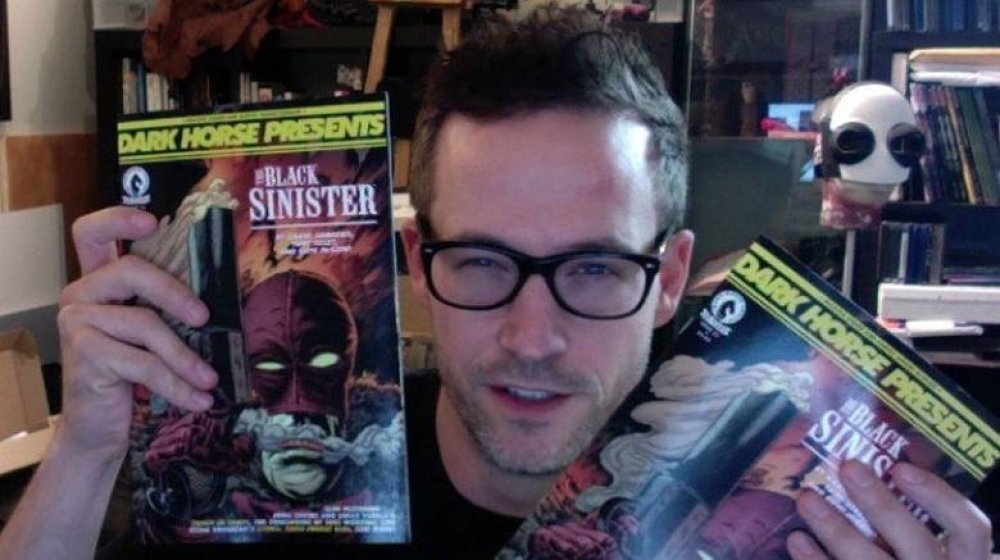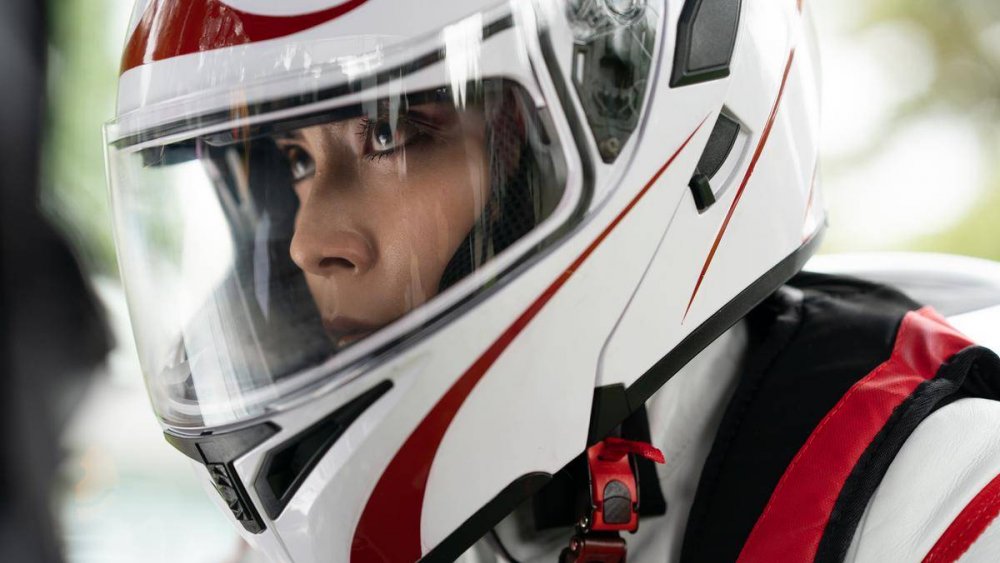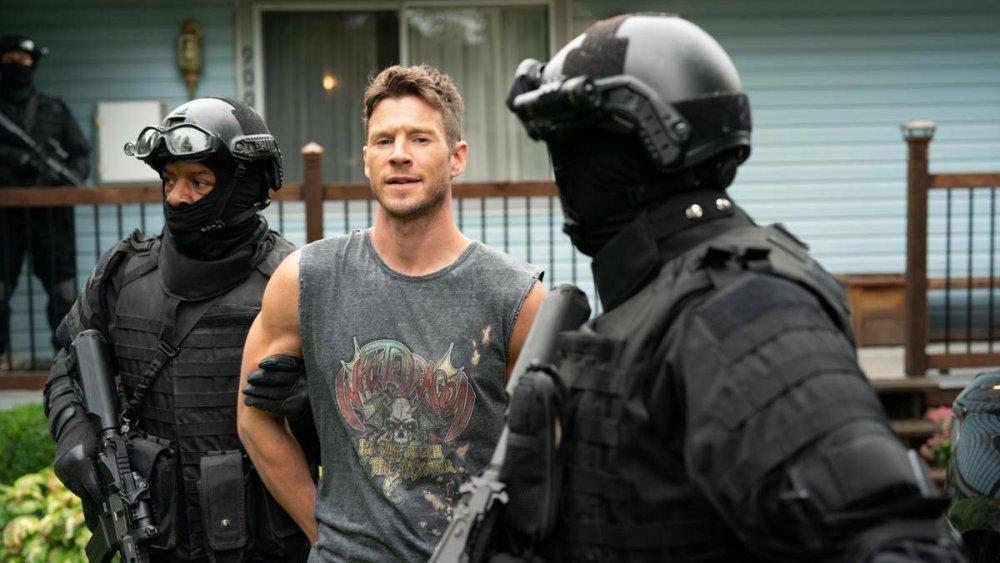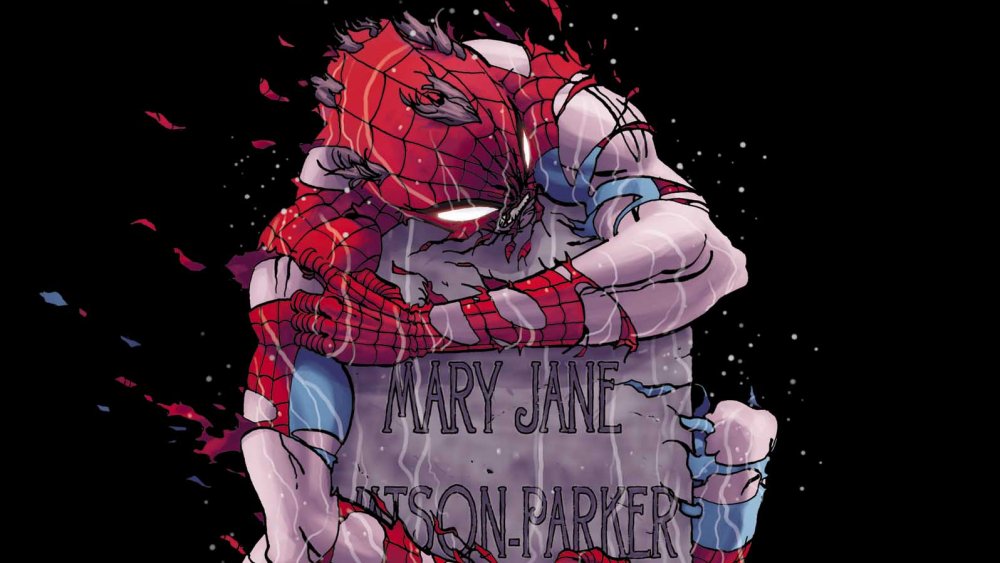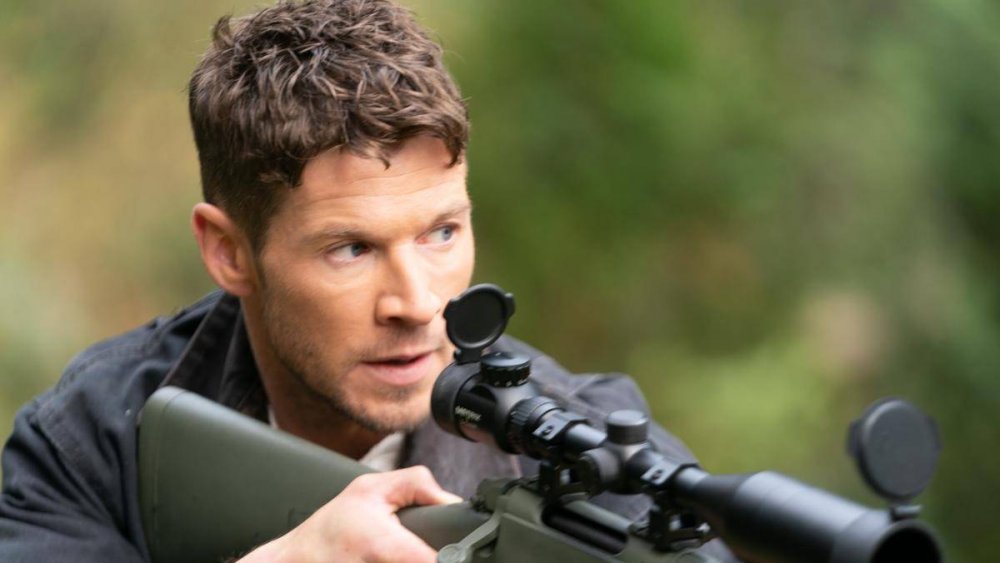Kaare Andrews On Directing Sniper: Assassin's End And His Comics Work - Exclusive Interview
Kaare Andrews has had a career any geek would be ecstatic to have. He's worked as a comic book artist and writer for many high-profile Marvel titles like Spider-Man, X-Men Unlimited, and Iron Fist. However, he's also always had a passion for filmmaking, even in his youth. In addition to making numerous short films, he directed 2010's Altitude, which was followed up by directing a segment for The ABCs of Death. His work extended to Cabin Fever: Patient Zero as well as television series like Van Helsing, Aftermath, and V Wars.
His latest effort is the action film Sniper: Assassin's End. It's the eighth film in the franchise, but Andrews' first time working on an action movie. Needless to say, he has plenty of experience drawing and writing action beats for all of the comic book stories he's been part of over the years, but how did that influence his filmmaking?
In an exclusive interview with Looper, Kaare Andrews talked about his long, illustrious career. He discusses what it's like filming an action movie, the transition from making comic books to directing movies, and the Spider-Man story he most wants to see in the Marvel Cinematic Universe.
On filming intense action scenes
The film has a lot of action set pieces. Which one was the most difficult and/or the most fun to film?
Well, those are many questions all bundled together. To be honest, the most difficult action is never the most elaborate action, is never the most carefully planned out action. The most difficult action is the action you have to film when everything goes wrong, and you're at the end of the day and you have to make really hard decisions on how to shoot something that would otherwise be impossible and none of your plans are working. That's always the most difficult.
I won't reveal which one of those was that, but we definitely had one scene where the cameras were failing, the lights were strobing, we were running out of time. It was just the chaos of filmmaking. But the most elaborate action was probably the shootout on the road, just because it involved so many vehicles and the car crash, weapons and choreography between a whole group of people all kind of swarming into one.
So, it took a lot of planning in terms of... What I generally do with car things, is I go buy a bunch of PLAYMOBIL toys. I'll get the label maker out, and we can label every figure in every car and you can kind of do an above ground, like a God's eye, view and work out all the logistics of how the cars will crash and how the people will react, and kind of that. That was probably the most technically difficult.
Then in terms of hand-to-hand combat, we have a fight between Lady Death and Brandon in the woods that we spent a lot of time choreographing the hand-to-hand mechanics, and then the actors probably spent the most time rehearsing that fight. All those little action scenes are very challenging for entirely different ways, but that's part of the fun of it — the challenge of it.
You've worked as a comic book artist for many years. Did you intentionally utilize that background in framing certain scenes for Sniper?
Not really. I get that question a lot if my comic book background influenced my filmmaking. And it must, but not in a way that I'm necessarily leaning into. When I direct, I draw a lot of storyboards, and I'm used to breaking things down in terms of shots, as opposed to maybe some directors approach filming in terms of coverage. But I approach filming in terms of shots. So probably just that approach has some kind of impact on it, but not intentional.
Although I do get the comment all the time when I'm drawing comic books that "Oh, this is very filmic comic book storytelling." I often get the comment the other way as well, being like, "Oh, I can totally see the comic influence in your film." So I try not to think about it too much, but definitely some of the heightened aesthetics of Lady Death are almost a little bit superhero-y at times, in terms of her signature look and some of the tricks she has up her sleeve.
On the transition from comic books to filmmaking
Can you talk a little bit about how you made the transition from comic books to directing movies?
Sure. I mean, when I was a kid, they were all the same thing. So as a kid, I was making movies and drawing comic books and making models, and learning special effects and learning how to paint. They were really just one thing, just like my hobbies, and I loved to do them. I used to give book reports on movie magic in grade one. I was also drawing comic books and animating stop motion movies on my Super 8 camera.
It wasn't until later in life when the world was like, "These are all different things and you can only do one of them, maybe. Pick one and try to do that." I just picked comic books because I grew up in a small city in the middle of Canada called Saskatoon, and there was no filmmaking going on in Saskatoon. Even in comic books, there was one guy in the city who drew a Superman book.
But I chose that first and it took me a while to break in, and I finally broke in and moved to Vancouver. Then the first thing I did when I got out to Vancouver was buy a bunch of film here and start making short films, because it was like, "Well, why can't I? I did the one thing, why can't I do all the rest?" So I've been trying to prove the world wrong for many years now.
On the Spider-Man story he wants to see in the MCU
Are there any comic book stories you'd like to see make it into the MCU? Any you've worked on or just any stories you're personally a fan of?
Well, I did this one crazy Spider-Man comic book called Spider-Man: Reign a couple years ago. It's a very dark, dystopic tale of Spider-Man, but it reinvests the core of his character — with great power, comes great responsibility. In that book, I explored the idea of what if Peter Parker was somehow responsible for Mary Jane's death, and what if he didn't have the power to save her? If he didn't have the power, maybe he doesn't have the responsibility.
So it's a strange little book. I still see new articles written about it every few months because it's such a controversial tale that I think it's one that would be right for some kind of film exploration at some point. But it wouldn't be anytime soon because it's an old man Spider-Man. You'd have to kind of let Tom Holland have his six-movie run, and let the public get so sick of Spider-Man that they'd have to come at it with a new way, like they did with the Logan movie. You shouldn't have to have that kind of circumstance, but when the time is right, I think a Spider-Man: Reign movie will be pretty cool.
Maybe they can find a way to incorporate it into [Into the] Spider-Verse 2.
Yeah, I don't know. To be honest, I thought maybe that one older Peter Parker in the first Spider-Verse was as much as they would allow themselves to lean into that kind of dark version of Spider-Man. I don't know if Spider-Man: Reign fits the tone of that series. I wouldn't hold my breath that old man Peter Parker in his boxers and spider mask [is] going to show up there anytime soon.
On a sequel and his work with horror movies
Getting back to Assassin's End, the movie ends with a tease of what could happen for a sequel. Do you have any interest in coming back to helm another Sniper film?
Well, I had so much fun directing the movie, you'll have to ask Sony what their actual plans are. We kind of wanted to end it in a fun way. I'm very interested in endings of, whether they're movies or comic books, the kind of an ending that suggests a continuation, whether or not that continuation is actually made. So when I'm writing my own material, for Iron Fist — I wrote Iron Fist for a couple of years — I tried to end it in a way where the reader could continue on with those characters in that story in their imagination. So even though I'm done, it's kind of like, let that world live on.
That's what I liked about their ending in Assassin's End. You'll have to see it to know what I'm talking about. But it ends in such a way that your mind can easily go to new places with new characters and kind of fill out the rest of that world yourself. Whether or not that movie, or those movies or whatever, actually happens or not.
Before Sniper, you've directed several horror films in the past. What was the transition like going from horror to a straight-up action film?
What was interesting is when I first started writing screenplays, the very first film I wrote was a horror movie, and the second film I wrote was a ninja movie. And the third film I wrote was another horror movie. That third film was optioned by a company and [they] were going to make it. And then I went back into my ninja movie, and then that was optioned. And we were developing it for a few years. I was developing it with Gale Anne Hurd.
I've always kind of loved horror and action and all the genres because there's such an opportunity for visual and industrial filmmaking. My favorites are David Fincher, Sam Raimi, James Cameron, and Ridley Scott. These visualists, they oftentimes jump back and forth to something horrific and something fantastical and something action-y. The first Terminator movie is really a horror movie. It's really a slasher film that has a sci-fi component and huge action core. But I've always thought of them as the same thing, so I didn't really feel like it was a transition.
Anytime you do a movie, people need to see what you can do. So I felt like I didn't really have an opportunity to prove my fight and action ability for a while. I had to do a few projects. I did a segment in an anthology film called The ABCs of Death with some action and guns. Then in some of my TV work, I was able to finally choreograph some hand-to-hand combat. So much fun.
I'm a huge martial arts fan. I've studied a little bit of it, very little, but I'm a big fan. But very little. A little karate, a little Taekwondo, a little Pankration. I'm a huge MMA fan. I love this stuff so much. I find such a strong parallel between a martial artist and a visual artist. Martial arts, it's not a team sport, it's one man against 100. In the visual arts world, it's the same thing. You're learning all the teachings of generations of people before you, and it's a battle between you and 100 other artists or challenges. Even directing. You don't direct as a team, it's just you as a director, and you have to kind of face that film.
I feel such a parallel sense of philosophy and execution to martial arts when I'm either drawing or directing. It's pretty fun. But I'd love to show more action. Our film was pretty modest and pretty contained. So we didn't have a lot of shooting days and we didn't have a lot of money, but we really focused our efforts to try to do as much as we could under those circumstances.
I think we did a pretty good job, but I would love a chance to kind of flex a little bit more and have a little bit more time and a little bit more money. Because I have some really interesting action techniques that I haven't seen done before, and I have some pretty cool things that I want to do that I think would really... I think I just haven't seen them before, and I would love to try them out and then leash them onto the world and just kind of... I love that genre so much. I'd love to just shake it up.
